Hope, despair, apathy, rage… What does it take to run an independent media outlet under an authoritarian regime? What is the emotional toll of journalistic work in such a climate? And what feelings arise for readers confronted with the raw, unsettling truth?
These are the questions explored by Polina Aronson, sociologist and Affective Societies’s public relations officer, in a conversation with Galina Timchenko, publisher of the leading Russian-language independent media platform Meduza. Founded in 2014 by a group of former Russian journalists, Meduza is now based in Riga, Latvia, and reaches around 10 million readers. In Russia, it has been declared an “undesirable organization” by the authorities.
The conversation took place on June 11, 2025, as part of the supporting program for the tenth anniversary exhibition of Meduza, hosted at Kunstquartier Bethanien in Berlin. The idea for this conversation is directly related to the main themes of the exhibition. When the curators looked back at a decade of Meduza headlines, they picked out nine themes that defined these ten years. Surprisingly—or perhaps not—many of them were about emotions. Alongside the usual suspects—dictatorship, censorship, war, resistance, polarization, and exile—there were also fear, loneliness, and hope. That is how the curators knew they had to include a talk on feelings.
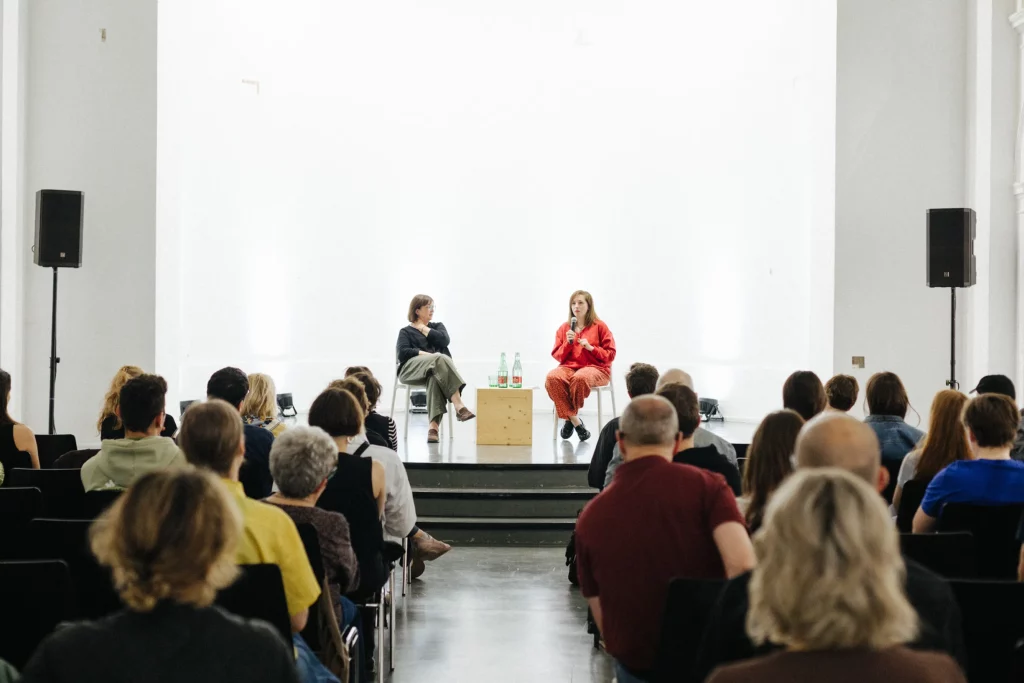
“Negative Emotions Get in the Way of Patriotism”: How Authoritarianism and War Shape Our Emotional Lives
Polina Aronson: While preparing for the No exhibition, you went through Meduza’s headlines from the past ten years and tried to identify the main themes. That’s standard content analysis—something any sociologist would recognize. What’s interesting is how many emotionally charged words popped up. Galina, what emotion has hit you hardest lately?
Galina Timchenko: There are a few feelings I’m observing in the team, and also coming through in feedback from our readers. The main one is exhaustion. That awful feeling that neither you nor the people reading your work have any energy left. That exhaustion leads to irritability, which can turn into anger, rage, hysteria—even hatred. But I think underneath it all—exhaustion, irritation, disappointment—is something else: hope. For some reason, we all keep hoping. Hoping for a better future. But it never comes.
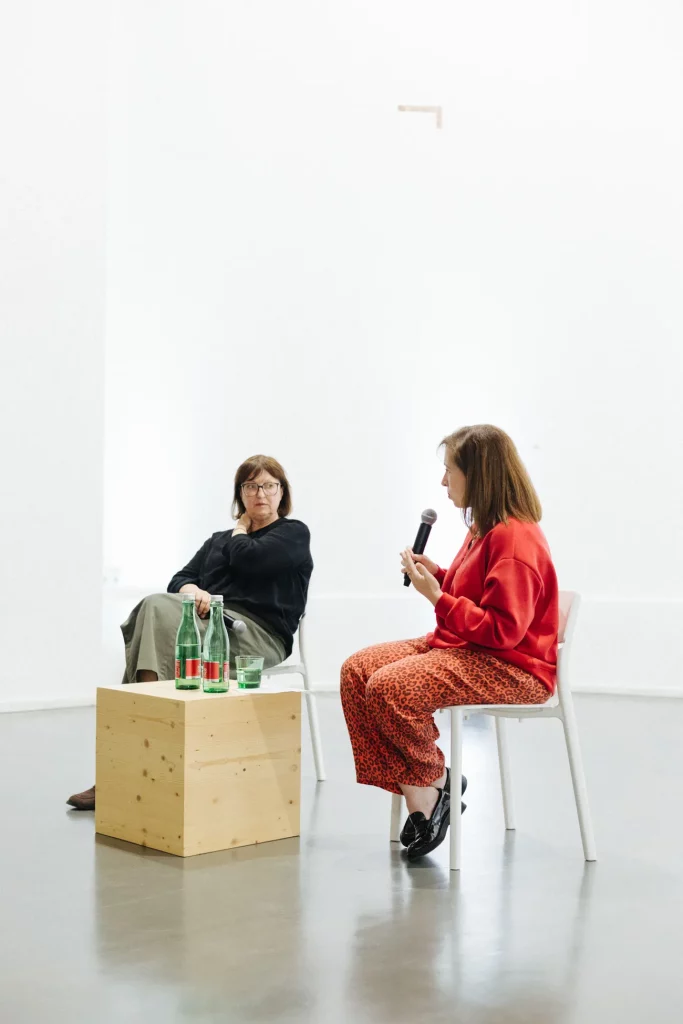
PA: We recently held a big conference at the Free University of Berlin. A colleague from Israel gave a talk about hope and made a similar point about the opposition in her country [Michal Givoni, „Protest of the Captive Heart: Mobilizing Desperation,“ May 5, 2025]. She warned about confusing real hope with the desire for hope. Slogans like “Give us hope, give us something to hope for” create a sense of solidarity—but only among those who believe they’re entitled to hope. It’s a kind of exclusive solidarity. The desire for hope creates a privileged group: people who kept hoping for change can’t—or won’t—see those who no longer even have the basic resources to hope. So can we say that hope is a privilege?
GT: I’d say the opposite. Most people hope unconsciously. If you have access to information and know how to analyze it, you probably understand there’s not much to hope for. Maybe you can hope in yourself, but let’s be honest—we all let ourselves down sometimes. That doesn’t mean we stop doing things, though. To me, people who cling to hope are often the ones who haven’t reflected on things deeply. Hope isn’t a privilege; it’s more like a refuge for the uninformed.
PA: Since we’re in Berlin, there are two great German words for hope: Hoffnung and Zuversicht. The first is just hope. The second is more like confidence in the future—a kind of bridge you walk across, step by step. It’s not just waiting for something better; it’s knowing what needs to be done. Do you think anyone has that kind of confidence right now?
GT: I really like that second concept, but maybe without the “future” part—just the confidence in what you’re doing. Trusting in your own strength, your own resources. What scares me is this other thing: emotional flooding, where people get completely overwhelmed. It drives me nuts when, on March 5—Stalin’s death date—people post stuff like, “One tyrant died, the next will too.” Seriously? You’re just sitting around, waiting for someone to die? He might live another 20 years. You might not. Is that really your plan? That kind of hope feels humiliating.
PA: I’ve been observing the opposite reaction for a long time—not emotional flooding, but rather emotional dullness. In our research center Affective Societies, my colleagues use the term “unfeeling.” It’s not quite numbness—it’s more like a gradual shutting down of emotions. Psychologists may call it dissociation. It’s something almost everyone has experienced. When something horrific happens—something so big and terrible that we can’t process or influence it—our minds find ways to protect us. We narrow our focus, block things out, and limit our world to what feels manageable.
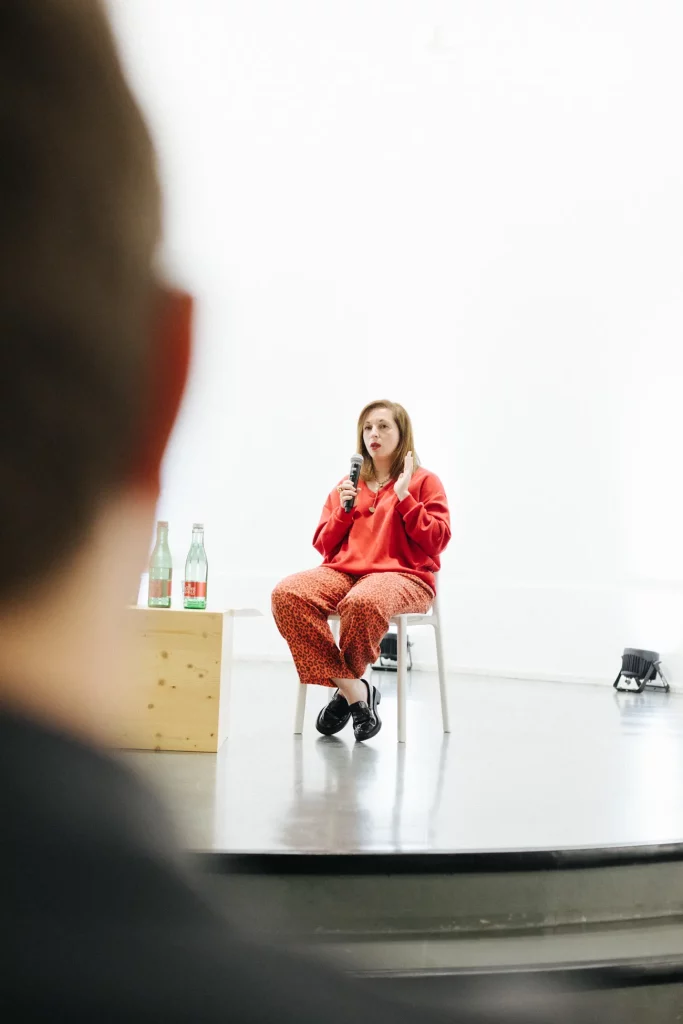
My colleagues study this phenomenon in the context of climate change. But their approach also fits today’s Russia perfectly. People are living in a kind of partial emotional shutdown, and sociological research confirms that. For example, after Ukrainian forces entered Russia’s Kursk region, the Levada Center [an independent public opinion research center] conducted a poll. At first, people said, “We’re scared. It’s shocking.” But just a week later? Nothing. The border had been crossed, there were actual battles on Russian soil—and the fear just… vanished.
Another group of researchers at the Public Sociology Lab has been conducting interviews in Russia since the full-scale invasion began. The story is very similar. There’s this quiet dread, like a muffled terror. It breaks through at the edges—among the strongest opponents and the most fanatical supporters. But in the middle, you get dissociation, rationalization, and this process of unfeeling. And here’s the thing: the Russian state is actively turning this unfeeling into policy. They’ve gotten very good at speaking the language of psychotherapy. Two months before the full-scale invasion, when Memorial International [one of the oldest Russian Human Rights centers and winner of the 2022 Nobel Peace Prize] was shut down, the Prosecutor General’s Office justified it by saying that Memorial’s activities were “causing depression among citizens.” Basically: We, the state, are going to protect your mental health. We won’t let you hear anything bad—because negative emotions interfere with patriotism.
“Cry Later, Write First”: How Journalists Cope With Their Emotions
GT: Speaking of dissociation—yeah, it’s part of the job. EMTs, firefighters, journalists—we have to dissociate. That’s the profession. When Anton Nosik, founder of Lenta.ru [a previously independent Russian news platform hijacked and placed under state control by the Russian authorities in 2014], died, I ran home, and Ivan [Kolpakov, Meduza’s editor-in-chief] was already waiting at my door. He said, “Okay, cry later. First, write.” I’d built Lenta.ru with Anton. And when it ended, he gave us his blessing to create Meduza. But still, I sat down and wrote the article first. Then I kicked Ivan out, closed the door, and cried. We have to dissociate, or we wouldn’t be able to do our jobs. But readers expect full emotional engagement. They want to know what we’re feeling. They look for emotion even in straight news articles.
PA: That’s such an important question—how should journalists handle their emotions? Objectivity is journalism’s sacred cow. You’re supposed to stick to the facts. But what if you’re reporting from an occupied city? Or describing what happened in Bucha? Is it really ethical to separate emotion from fact?
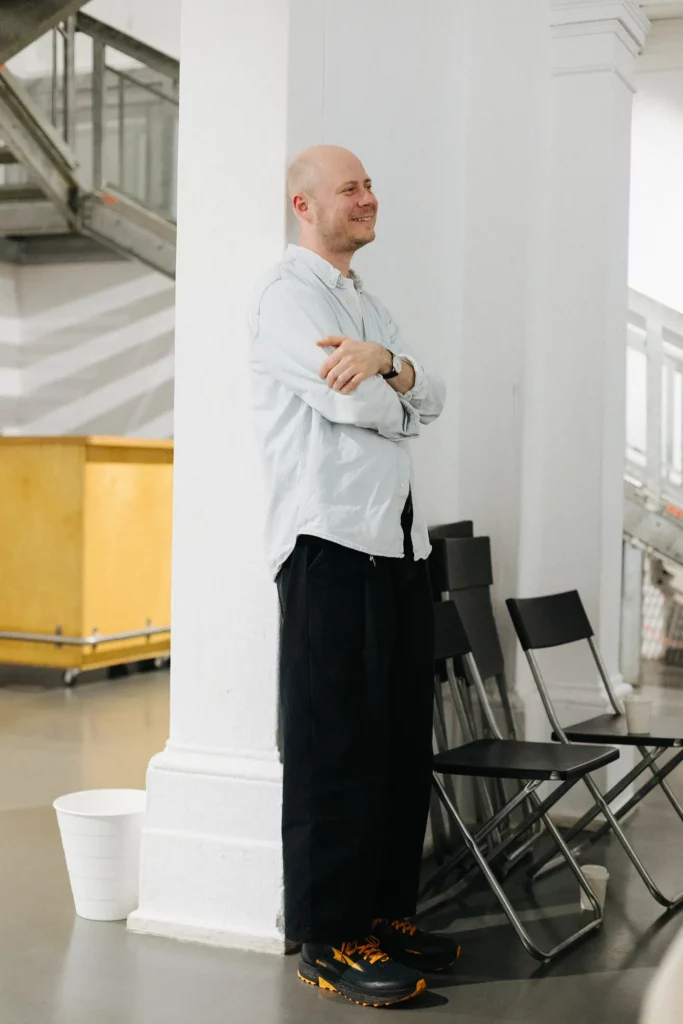
GT: In truth, the real craft lies in writing something with zero adjectives—but still making the reader feel everything you felt. Recently, Shura Burtin, an incredible journalist, wrote a piece about the Ukrainian army and what it’s like for people on the front lines. The editor working with him delayed publishing it for a week—because she was trying to take the emotion out. Because we’re not just mirrors of events. The people we interview are already mirrors of those events, and we’re the mirror of them. We don’t owe readers our personal emotions. What we do is give a voice to people who’ve been silenced. The Ukrainian teenager on the front line who’s seen death—that voice matters more than the journalist’s. We try to take ourselves out of the story, and I think that’s the right thing to do. We don’t want to be the stars of the piece or the newsmakers. But sadly, some readers interpret that restraint as unfeeling.
PA: Meduza uses a lot of different formats—standard reporting, social media, newsletters, podcasts. What’s the emotional “temperature” like across these different platforms? Why do people turn to them?
GT: There has to be a space where people feel a bit warmer than they do on the main site. For instance, we shut down the Chapiteau section on our website [the entertainment and lifestyle section] and said, “Sorry, no entertainment right now—not while people are being killed.” Harsh? Maybe. But our Instagram is a different space. There, we embrace you. We say, “Yeah, it’s bad. But maybe it’ll get better. We’re still here. We’re still alive. Let’s smile, just for a second.”
PA: How do you feel about the idea of dostuchatsya (reaching out) to people? Personally, I’ve developed a serious allergy to that word.
GT: I hate it. In my line of work, I talk to a lot of people from international organizations. And they always ask me, “How can you reach audiences under the influence of propaganda?” And my answer is: I can’t. Anyone who claims they can is lying. People who don’t want to hear something, won’t hear it. I know it sounds harsh, but to me, respecting your audience means not trying to shove something down their throat. I won’t grab people by the collar and scream, “This matters!” Everyone gets to choose, to decide for themselves.
PA: That brings us back to the exhibition. A big part of it focuses on feelings—not just ideas. Some rooms talk about loneliness, fear, even hope again. What you’ve created is what my colleagues at CRC Affective Societies call an “affective archive.” What are you trying to preserve with it? Why is it important to archive emotions, not just convictions?
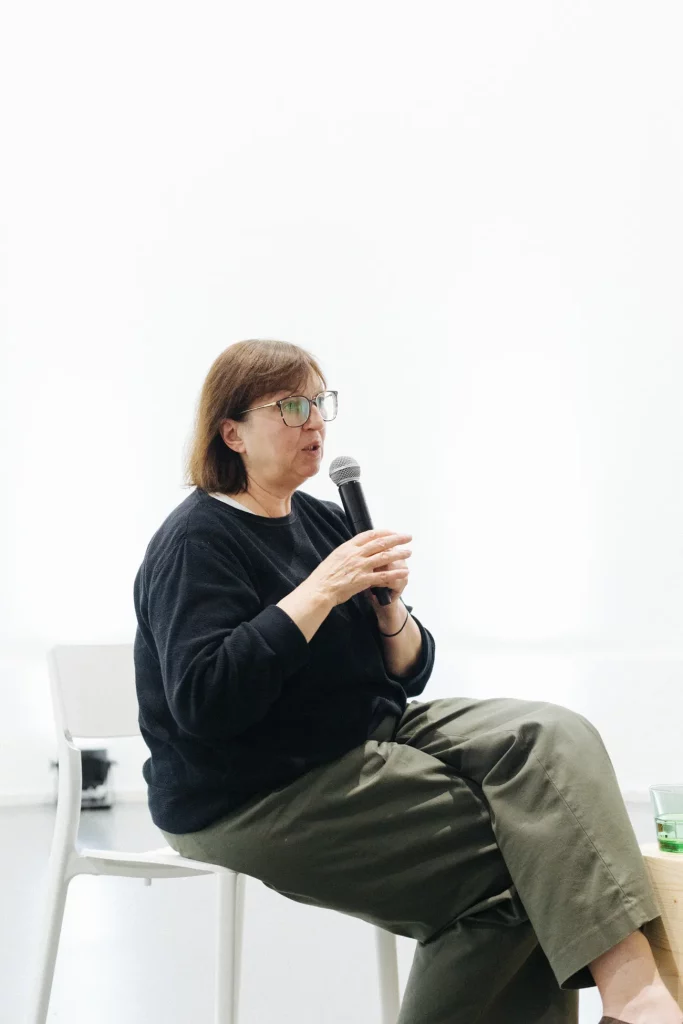
GT: I wasn’t too involved in shaping the exhibition content. What I did do was “Slack archaeology”—I went back through work chat logs and picked out quotes from key moments. And what I love most? There are so many raw emotions in those logs. Like one person from our back office, helping evacuate staff after the invasion began, wrote: “I can’t take it anymore—I burst into tears at the supermarket.” Another replied, “I pulled over and cried in my car today.”
Or the night of February 24, when the full-scale invasion began, I messaged, “Who’s awake?” And everyone answered: “I’m here. Do you need anything?” Then one colleague wrote, “I found out today my family supports the war. You guys are all I’ve got.” We went online and haven’t stopped since. It’s been over 1,200 days of war coverage. Behind it all are real people. Yes, sometimes they dissociate. They get the job done—and then they cry.
PA: As someone who studies emotions—and also as a human being who cares deeply—I think your exhibition is an incredibly important portrait of our times. Sociologists and anthropologists often say that emotional norms always align with the political regime. You can’t have a political regime without norms of feeling. The way we’re allowed—or not allowed—to feel tells us a lot about society. So what you’ve built here is like a snapshot of the emotional climate.
GT: What we really wanted was for the exhibition to talk about the things that truly unite us. And emotions are exactly that. We all feel fear from time to time—actually, almost all the time. We feel loneliness. Or that surge of resistance, the one that hits when you say: “No, I won’t accept this. You can’t treat me like that.” That feeling of “No”—that’s what we wanted to capture. This exhibition is a bridge between us and the readers. We’re not machines, and readers aren’t just clicks.
Back in the day—another life, really—journalists used to obsess over search engine algorithms. We’d write headlines to please Yandex News [a Russian search engine censored by the state] so we could get more traffic, and with that, more ad money. I gave a talk once, back in 2009, at RIA Novosti [Russia’s largest news agency]—back when RIA still had a human face. I said: “Nobody here is talking about the reader. What does the reader want?” The reader is the only reason we exist. If they stop reading—we shut down, full stop.
How Do You Talk to Loved Ones When They Think Differently? Galina and Polina Answer Questions From the Audience
Question: I have a stepbrother. He’s 17. He might be drafted. His dad watches Solovyov [a prominent pro-Putin TV host] and totally influences him. The other day, my brother put a “Z” in his Telegram status. How do you even reach someone that young?

PA: I’m so sorry—that sounds incredibly painful. I think in a case like this, it helps to start with personal talk. Don’t jump into a lecture. Ask him what’s going on in his life. From research, we know how people, especially young people, get drawn toward radical ideologies. Shame plays a big role. Often, they feel like they don’t measure up, even if they don’t consciously realize it. That shame can morph into hate, anger, contempt. You might try gently approaching that feeling—so he can see it for what it is. But most importantly, stay with the personal and don’t push too hard towards political first.
GT: Let me give you two examples—one from the exhibition. In the “War” section, there’s an interview with Lilia Yapparova [Meduza’s special correspondent]. She talks about a trip to besieged Chernihiv, how she had to escape via the only open bridge, under fire, along with the last civilians. Misha Durnenkov [Playwright and director of the exhibition’s documentary project] asks her, “Well, didn’t you want to go to war?” And Lilia says: “I feel so ashamed that I ever wanted to be a war correspondent. I had no idea what it was and I thought I could show who I am by doing it.”

Another story. Misha Zygar—famous author, we published one of his books—once told me: “Galya, I was so scared to admit that I wasn’t like other guys. I went to war zones as a reporter—to Syria, Lebanon, the Middle East—to prove I was a real man. I couldn’t accept myself, so I threw myself into war. Only later did I realize: I didn’t need war to accept myself.”
What I’m trying to say is—these views are often rooted in shame. In the feeling that you’re not enough. And in wanting to belong to the strong majority. It’s not necessarily about malice. There’s an installation in the exhibition by Gülsün Karamustafa—child-sized military uniforms. It’s about something similar. Moms dressing their kids like little soldiers, to make them just like everyone else.
Question: You said people shut down emotionally when overwhelmed by bad news. My relatives in Russia either ignore the news completely or try to rationalize it—tell themselves it’s not really that bad. I find it hard to talk with them. I want to feel connected. How do you talk to loved ones about the news?
PA: This is a question that the best minds—and even AI researchers—are trying to solve. Some are trying to train AI to persuade people. Honestly, I find that kind of thing a little inhuman. I doubt that you’ll succeed if you try to change someone’s mind. But maybe there’s another way. If these people really matter to you—if cutting ties would be unbearably painful—then maybe the only way to preserve the relationship is to walk a fine line. That sounds awful, I know. A few years ago, I might not have said that. But I’ve been through it myself with friends.
Since the invasion began, I’ve been watching how public-facing psychologists react. That’s my research field. One blogger with a big Facebook following—very anti-war, lives outside Russia—spent early 2022 urging people to stay united. “They want to divide us—don’t fall for it. So your grandma believes the propaganda—she’s still your grandma.” By summer she’d shifted: “Yes, everything’s falling apart. Try not to give up. Buy a new handbag. Go swimming.” Basically—feed your dissociation. Then in September 2022, after a massive missile strike on Kyiv, she posted a long rant: “Remember the names of those who support this. Especially those who celebrate it. Never sit at the same table with them. Never share a bed or a job.” That’s the breaking point—when someone says something so unbearable, you can’t stay. Because you’re a human being too. But until you reach that point—until the relationship becomes intolerable—it’s worth trying to respond with humanity, empathy, compassion. Just don’t let them bait you into a debate. They’ll want to convince you.
GT: I know someone who studied psychiatry. His professor told him, “Before you start diagnosing people with narcissism or psychopathy, remember—some people are just assholes.” Not everyone can look evil in the face and name it. That’s where rationalization comes from.
Western politicians did this too: “Putin won’t start a war—it’s irrational.” But irrational evil exists. There are just assholes. People are afraid to acknowledge that. You can’t expect everyone to face that fear, especially not your loved ones. But even if they don’t call it evil out loud, somewhere deep down—they know. And that’s already something.
Questions About Meduza and Its Audience
Question: Who are Meduza’s readers now? Are you speaking to people inside Russia or those who’ve left?
GT: It’s changing in real time. For a while, we were pretty good at playing cat and mouse—“Catch me if you can.” But ten years ago, the people working for the Kremlin weren’t that sharp. Now there’s a whole new generation of digital-savvy operatives. For them, the internet isn’t just where they live—it’s their only possible social elevator. They’re smart. Skilled. They know what they’re doing. I hate them—but still, credit where it’s due.
Our app can still bypass blocks inside Russia. But a year ago, our “mirrors”—alternative servers with identical copies of our site—were blocked maybe twice a week. Now? Every ten minutes. We’re constantly changing mirrors.
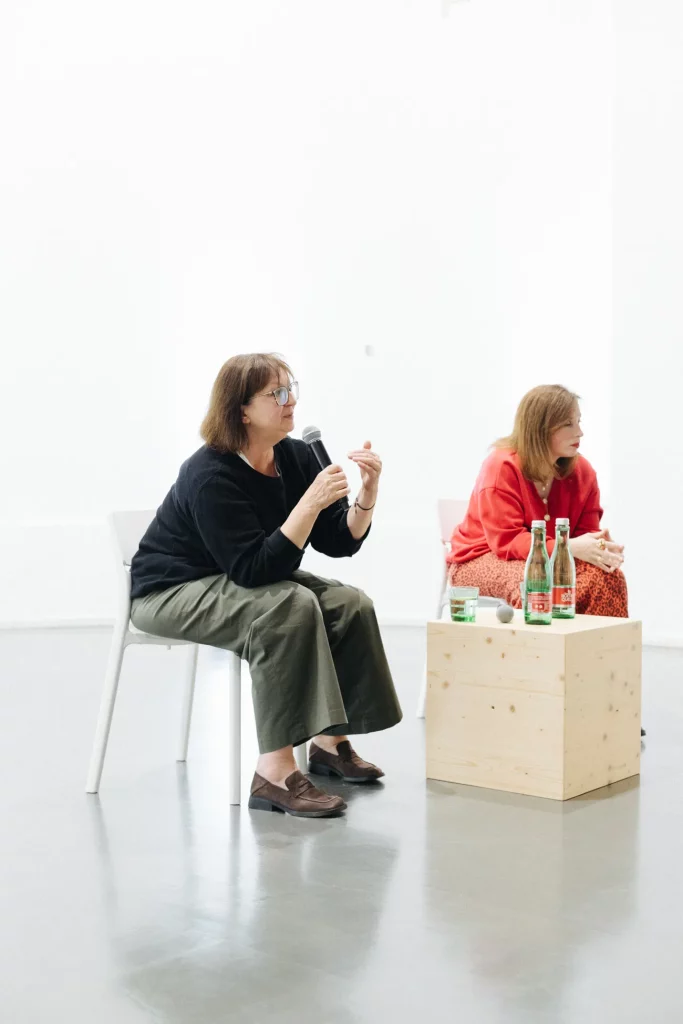
As for our Russian audience, we can only estimate. When we were first blocked, visits from the Netherlands shot up 700%, from New Zealand 300%, from France 500%. You can picture it: all of New Zealand waking up and saying, “Let’s read Meduza in Russian.” Obviously, that’s VPNs.
We’ve since figured out how to count our Russian readers again, and we estimate around 8–10 million. That’s not a lot—before the war, it was 20 million. The door is closing. We’re going to keep losing our Russian audience. I met with a human rights activist still based in Russia. She said, “It doesn’t feel like you’re working from abroad.” But we know that won’t last forever.
No matter how secure our systems are, people say: “We’re scared to work with you.” “We’re scared to even read you.” Some uninstall the app, even though you can change the icon so it doesn’t say Meduza. And I get it. No story is worth your health or your nerves.
Right now, we’re still working mostly for readers inside Russia. But I’m a pessimist. At every conference I say, “Guys, let’s not kid ourselves—we’re going to lose more and more readers.” It’s not just about fear. You can’t go around heartbroken for three years straight. You can’t grieve forever. At some point, you say: “I’m done. I can’t anymore. I’ve got loved ones, kids, birthdays, New Year’s. Please stop with the horrors.”
Question: Do people read Meduza in Ukraine? What feedback do you get from Ukrainian readers?
GT: Yes, they do. Though less than before. That said, there’s still a big hunger for information—like in any country at war. I know a fairly well-known Ukrainian who was really concerned about one of our pieces on army morale. He said, “People will read this and believe it. But we need to keep morale up.” So yes—they read us. Before the full-scale invasion, 18% of our readers were in Ukraine—that’s about one in four. Now it’s down to around 8–10%. But that’s still a lot. They read us, they sometimes get angry—and they have every right to feel whatever they feel. We also work with Ukrainian journalists—anonymously, of course.
Question: People I care about read the news nonstop, including Meduza, and it’s aging them before my eyes. I worry about them. Do you have any strategies to protect yourself from the news cycle?
GT: Can I give a slightly unserious answer? There’s a wonderful writer in Riga named Grigory Oster, author of Harmful Advice. He has a math riddle that goes: “If you sneak up on your dad and yell ‘Hooray!’ he’ll jump 18 cm. Grandpa, who lived through the revolution, jumps just 3 cm. How high do your relatives jump in total?” So—Meduza staff are mostly young, but the core of the newsroom came from Lenta.ru. Guys, I wrote about the Kursk submarine. I remember asking, “What does ‘the nuclear sub sank during drills’ mean?” The answer was… well, it wasn’t pretty. We covered the NTV raid [a formerly independent Russian TV broadcaster hijacked and taken full control of by the state], the Ostankino tower fire [a major fire at Moscow’s central TV tower in 2000], Nord-Ost [a Moscow theater terrorist attack in 2002, where during a musical performance over 800 people were hostages for several days; over 100 died], Beslan[a 2004 school siege in North Caucasus, where hundreds of children and parents were taken hostage by terrorists; many died during a chaotic rescue operation commanded by the Russian state]—we’ve seen it all. We’ve built up scar tissue. The younger ones don’t have those scars yet. And in a way, that’s good—they’re incredibly sensitive. They find stories I’d never have thought of. But they’re also the first to burn out. The most empathetic people burn out first. We try to force them to take time off. Doesn’t always work.
Question: Your reporting on the war in Ukraine has recently been expanded by a new format: You have started publishing letters from your readers. Why? Was it about making space for emotions, since journalists can’t express their own?
GT: Exactly. We sometimes call it—no disrespect intended—“palliative journalism.” It’s about letting readers know they’re not alone in the dark. That others are thinking and feeling the same. People like that don’t have a voice in Russian media. We also wanted Ukrainians to be heard by Russians, and vice versa—those who fled and those who stayed. It’s totally emotional. It’s not about breaking news.

Question: Do people with different views ever write to you? And if they do, why don’t you publish their letters?
GT: We sometimes get hate mail—“May you be cursed,” “You’re working for the West”—but there’s no point publishing that. We almost never get real letters from people trying to explain why they see the war differently. I guess they’re just as sure we won’t listen as we are that they won’t.
Question: On one hand, you say you can’t reach people who don’t want to hear you. But on the other, you say media can’t exist without readers. Isn’t that a contradiction?
GT: Not really. We built a media outlet that we ourselves wanted to read—knowing we weren’t alone. We knew we had like-minded people out there. So no contradiction. I use every tool I can to reach readers—but I don’t knock on every door. People under the spell of propaganda are basically in a totalitarian cult. It takes years of therapy with really smart people to break out of that.
Ivan just recommended me a book called Wolf Time about postwar Germany. The reckoning with Nazism didn’t happen right away—it took decades. I don’t have that kind of time. It takes years of therapy to deprogram someone. That’s what Wolf Time is about—how Germans didn’t fully process what happened until long after the war. It takes forever. And I don’t have forever. Ten million people read us—I’ll talk to them.
On June 28, 2025, the Russian-language version of Meduza published a condensed and edited transcript of the discussion, including answers to questions from the audience. With kind permission of Meduza, the CRC Blog is publishing the English translation of this talk, which was originally held in Russian.
Galina Timchenko (1962) is the co-founder, CEO, and publisher of Meduza—the largest independent Russian publication released in Russian and English. It is a media in exile that has been successfully operating for 8 years from Riga, Latvia. In April 2021, Russian authorities labeled Meduza as a „foreign agent,“ in March 2022 blocked its website, and in January 2023 declared Meduza an „undesirable organization.“ Galina also served as the editor-in-chief of Lenta.ru media from 2004 until 2014.
Polina Aronson (1980) is a sociologist and journalist. She was born in St. Petersburg and received her first degree in sociology from St. Petersburg State University. She holds a PhD from Warwick University and is currently working for the CRC Affective Societies as a PR manager. As a freelance journalist, Polina has published with openDemocracy, der Freitag, dekoder, AEON, Deutsche Welle, and other international media outlets.




